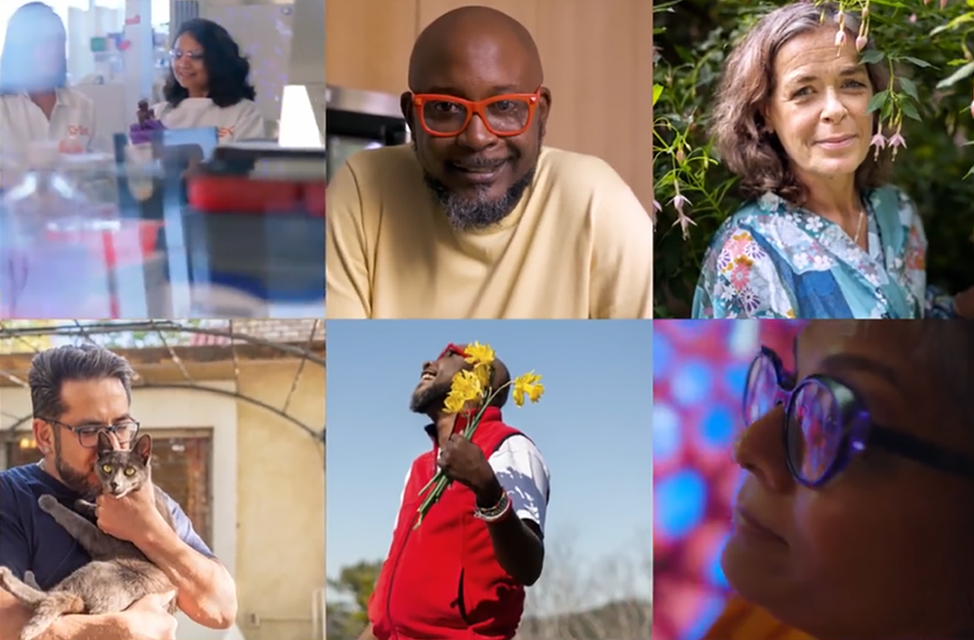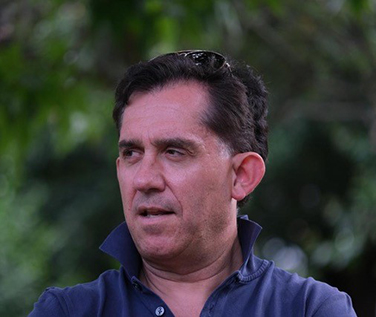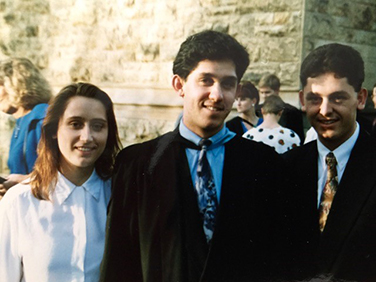31 March 2023
The world first heard of HIV/AIDS in the early 1980s. A disease largely misunderstood by the general public, it remains a worldwide health concern today. UK-based alumnus Andrew Stewart is part of an organisation working towards ending the global HIV epidemic.

Andrew Stewart
General Counsel and Chief Compliance Officer at ViiV Healthcare
Graduate Diploma in Legal Practice
HIV (human immunodeficiency virus) attacks the body's immune system, and if not treated, it can lead to AIDS (acquired immunodeficiency syndrome). While an immune system impaired by HIV/AIDS would once have been considered a fatal condition, treatments now available have improved the lives of those affected exponentially.
The first antiretroviral medication for treating HIV was developed within 10 years of the first HIV cases being diagnosed. “Just over 30 years ago, a GSK predecessor company, Burroughs Wellcome, developed the first anti-retroviral treatment for HIV, azidothmidine (or AZT),” says Andrew Stewart from ViiV Healthcare. “From then on, steady improvements in research have brought us new classes of treatment. Today, modern anti-retroviral treatments have transformed the nature of the disease, changing HIV from a death sentence to a manageable chronic condition, enabling people to live positively with HIV.”
Andrew leads the Legal and Compliance organisation at ViiV Healthcare and sits on ViiV’s executive team. “ViiV is the only pharmaceutical company in the world 100 per cent dedicated to the treatment and prevention of HIV,” he says. “ViiV is a tripartite joint venture created in 2009 by GSK in collaboration with Pfizer. GSK is the majority shareholder and Shionogi became a shareholder in 2012.”
GSK is a multinational pharmaceutical and biotechnology company headquartered in London where Andrew also leads the Legal and Compliance team in GSKs Global Health organisation. “GSK Global Health aims to positively impact the health of 1.3 billon people in low and lower middle-income countries over the next 10 years through the prevention and treatment of infectious diseases that are prevalent in the developing world,” says Andrew.
Andrew completed a double degree in Law and Science before undertaking UniSA’s Graduate Diploma in Legal Practice, a requirement for admission into legal practice as a Barrister and Solicitor. “UNiSA provided the stepping stone from law school to becoming a qualified lawyer. It provided the technical training necessary to be admitted into legal practice – it was the springboard for everything that followed.”
After a few years as a corporate transactions lawyer dealing with mergers and acquisitions, first in Adelaide and then Melbourne, Andrew relocated to the United Kingdom. “I moved to London quite early on to gain M&A experience in one of the world’s big deal centres, and ended up staying much longer than originally intended. I was involved in transactions in all sorts of sectors in those days – finance, energy, hotels, life sciences. It was a fast-paced and exciting period during which I honed my technical legal skills.”

with his legal skills to work in life sciences
Ultimately Andrew was able to combine his scientific knowledge with his legal skills. “With my legal experience in deals and finance, coupled with a scientific background, when an opportunity to move into life sciences came up, I jumped at it and have been involved in the life sciences industry since then.”
Currently 38 million people worldwide are living with HIV. Of these, the vast majority live in low and middle income countries. Worldwide there are 1.5 million new cases of HIV per year and 63 per cent of new infections are in young women and adolescent girls*.
Andrew says “ViiV’s Mission is ‘to leave no person living with HIV behind’. ViiV seeks to deliver on its Mission by selling its HIV medicines in developed commercial markets (such as North America, Europe and Australia), and by entering into royalty-free arrangements with generic manufacturers to make HIV medicines are available at lowest possible cost where they are needed most”.
On his role with GSK Global Health, Andrew says “the team is working on some of the most challenging health problems in resource limited settings. GSK is working on finding vaccines and medicines to prevent and treat diseases that are particularly prevalent in the developing world such as TB, malaria and anti-microbial resistance. GSKs efforts global health efforts helped GSK maintain its number one position on the global Access to Medicines Index for the 8th consecutive time in 2022.”

cousin Lyndal and brother Craig
Andrew’s passion for the work he is doing is evident. “The world is a big place and there are clear healthcare inequalities around the globe. Being able to contribute to doing something about that is important to me. If you get an opportunity to explore a diversity of cultures and viewpoints, grab it with both hands. I’ve been fortunate to work in a number of countries and to work with people from many different backgrounds. Experiencing their cultures, learning about what motivates them, what they care about, how they express themselves is hugely rewarding. The opportunity to couple that experience with working with incredibly clever people from around the world to bring life-saving medicines to patients has been an incredibly motivating experience”.
*Source: Latest global and regional statistics on the status of the AIDS epidemic




